Find Help
More Items From Ergsy search
-
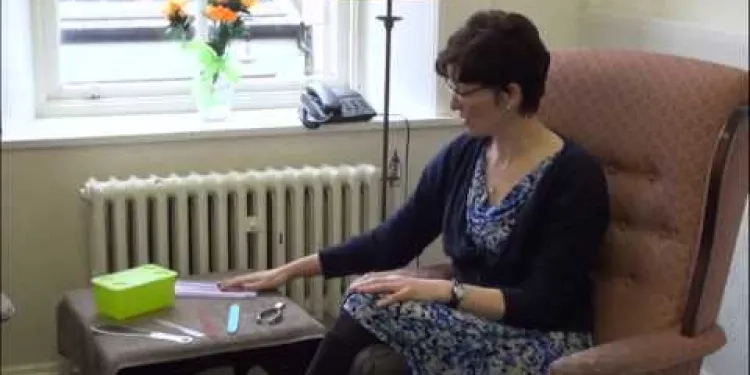
Podiatrist Personal Footcare
Relevance: 100%
-
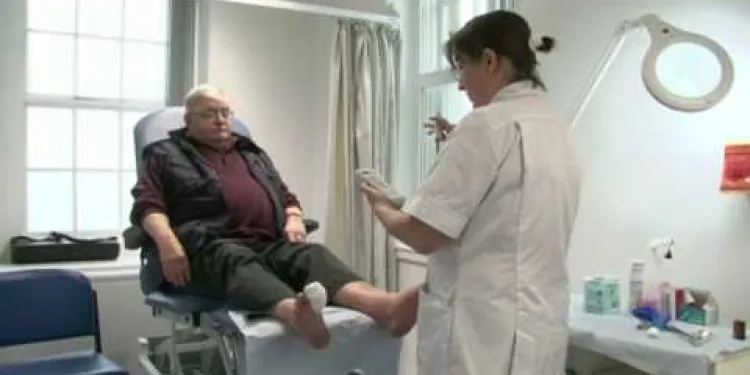
Diabetic Foot Conditions Podiatrist
Relevance: 41%
-

Self care for your feet - Podiatrist
Relevance: 38%
-

Podiatrist Fungal feet - fungal infection of skin and nails and how to prevent fungal infection in feet
Relevance: 33%
-

NHS Looking after your feet - Podiatrist https://youtu.be/8J1v6K21ykc
Relevance: 31%
-

Can Chikungunya be transmitted from person to person?
Relevance: 23%
-

Can nettle rash spread from person to person?
Relevance: 22%
-

Can Nipah Virus be transmitted from person to person?
Relevance: 21%
-

Can Zika virus be spread from person to person in the UK?
Relevance: 21%
-

Bluetooth Tracker with Personal Alarm
Relevance: 20%
-
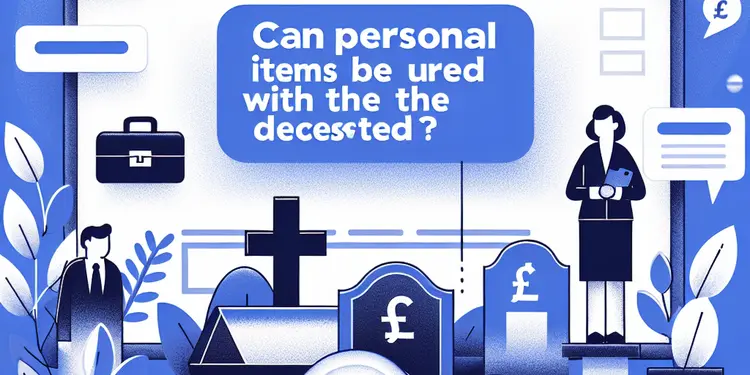
Can personal items be buried with the deceased?
Relevance: 20%
-

Can inmates have personal belongings?
Relevance: 19%
-

Will personal savings allowances be updated in 2026?
Relevance: 19%
-

Will the personal allowance be altered for the 2026 tax year?
Relevance: 19%
-

Can you use a defibrillator on a wet person?
Relevance: 18%
-

How long is a person with measles contagious?
Relevance: 18%
-

How do live-in caregivers manage their personal time?
Relevance: 18%
-

Short Films About Mental Health - Personality Disorders
Relevance: 18%
-

What is Personal Independence Payment (PIP)?
Relevance: 18%
-

Can residents personalize their living space in a care home?
Relevance: 18%
-

What is Personal Independence Payment (PIP)?
Relevance: 18%
-

Do I have to provide personal information to access a food bank?
Relevance: 17%
-

Does the EV grant apply to personal import vehicles?
Relevance: 17%
-

Can West Nile Virus be transmitted from person to person?
Relevance: 16%
-

What is Personal Independence Payment (PIP) & Attendance Allowance?
Relevance: 16%
-

Can I take first aid courses in person?
Relevance: 16%
-

Personal Health: Navigating the NHS for Efficient Care
Relevance: 16%
-

Navigating Personal Injury Claims: What You Need to Know Post-2023
Relevance: 15%
-

How do I know if my personal information was part of a data breach?
Relevance: 15%
-

Should people who have been in contact with an infected person get vaccinated?
Relevance: 15%
-

How can family members help assess an elderly person's driving ability?
Relevance: 14%
-

How can I assess the safety of an elderly person's home?
Relevance: 14%
-

Who decides when a person with an indefinite prison sentence is released?
Relevance: 14%
-

Dr Hilary Jones shares his professional and personal thoughts on Colten Care
Relevance: 13%
-

What Do You Want for Your Own Funeral? | Personal Funeral Wishes Explored
Relevance: 13%
-

What are the warning signs that an elderly person should stop driving?
Relevance: 13%
-

Can I trust online banks with my personal information?
Relevance: 13%
-

Women talking about their personal experiences of female genital mutilation (FGM) | NHS
Relevance: 12%
-
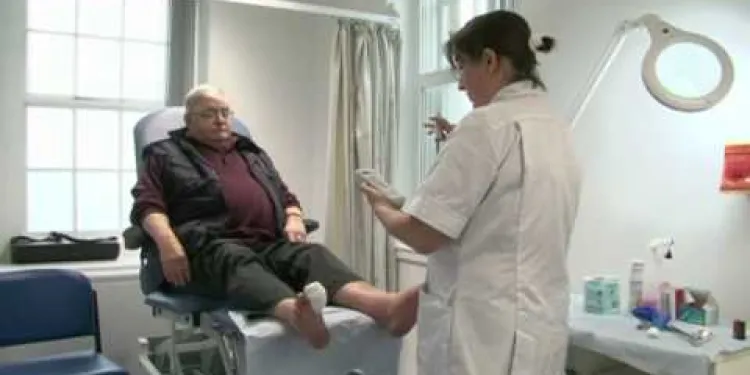
Diabetes Care - Preventing Amputations
Relevance: 10%
-
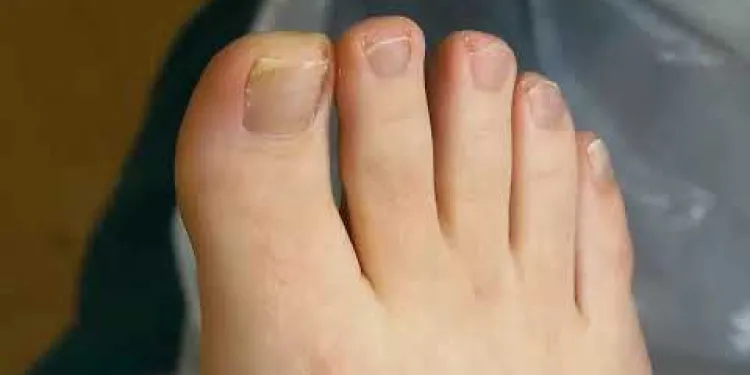
How to treat an ingrowing toenail / Involuted nail
Relevance: 10%
Podiatrist Personal Footcare: Maintaining Healthy Feet
Foot health is essential for overall well-being, yet it is often overlooked until a problem arises. Podiatrists, experts in foot and ankle health, provide crucial guidance and treatment for maintaining healthy feet. In the United Kingdom, accessing professional foot care through podiatrists can improve mobility, alleviate pain, and prevent future complications.
Understanding the Role of a Podiatrist
Podiatrists are healthcare professionals specializing in diagnosing and treating foot and lower limb conditions. From common issues like corns and calluses to more complex conditions such as heel pain and diabetic foot health, podiatrists offer comprehensive care. They are equipped with the knowledge and tools to address a wide range of foot-related problems both medically and surgically.
The Importance of Regular Foot Examinations
Regular foot examinations by a podiatrist are vital for early detection and treatment of foot issues. Such check-ups can help identify conditions like bunions, plantar fasciitis, and arthritis at an early stage. For individuals with diabetes, routine foot care is crucial to prevent complications like ulcers and infections. Podiatrists in the UK emphasize the importance of regular checks, especially for those with existing medical conditions.
Personal Hygiene Practices for Healthy Feet
Proper foot hygiene is a cornerstone of personal foot care. Regular washing, thorough drying, and moisturizing help prevent infections and skin disorders. Additionally, keeping toenails properly trimmed and using appropriate footwear can reduce the risk of injuries and deformities. UK podiatrists often advise on the right type of shoe and foot care products tailored to individual needs.
When to Seek a Podiatrist's Help
Many people in the UK consult a podiatrist when they experience persistent foot pain, changes in skin or nail condition, or injuries. Seeking professional advice sooner rather than later can prevent minor issues from escalating. If you experience symptoms such as redness, swelling, or unusual sensations in your feet, it may be time to book an appointment with a podiatrist.
Conclusion
Maintaining healthy feet is an essential aspect of overall health, and podiatrists play a critical role in providing the necessary care and guidance. By focusing on preventive measures and seeking professional advice, individuals in the UK can significantly improve their foot health and overall quality of life. Regular consultations with a podiatrist can identify potential issues early and ensure a proactive approach to foot health.
Podiatrist Personal Footcare: Keeping Feet Healthy
Taking care of your feet is important for feeling good. Unfortunately, many people do not think about foot health until there is a problem. Podiatrists are doctors who help with foot and ankle problems. In the UK, they can help you walk better, reduce pain, and stop future problems.
What Does a Podiatrist Do?
Podiatrists are special doctors who help with foot problems. They can fix simple things like hard skin or more serious issues like painful heels and diabetic foot care. Podiatrists know a lot about foot health. They use different tools to help make your feet feel better.
Why Regular Foot Checks Are Important
Seeing a podiatrist regularly can help catch foot problems early. This means getting help for things like sore toes, heel pain, or joint pain quickly. If you have diabetes, checking your feet often is very important to avoid more serious issues. UK podiatrists say regular checks are important, especially if you have health problems already.
How to Keep Feet Clean and Healthy
Keeping your feet clean helps them stay healthy. Wash them often, dry them well, and use lotion. Also, cut your toenails carefully and wear the right shoes. This helps prevent injuries. Podiatrists in the UK can tell you what shoes and foot care products are best for you.
When to See a Podiatrist
People in the UK see a podiatrist if they have foot pain, skin or nail changes, or injuries. Getting help early can stop small problems from getting worse. If your feet are red, swollen, or feel different, it is a good idea to see a podiatrist.
Conclusion
Healthy feet are important for feeling good, and podiatrists can help. Taking steps to prevent foot problems and seeing a podiatrist can make your feet healthier. In the UK, regular podiatrist visits can help find problems early and take better care of your feet.
Frequently Asked Questions
What is a podiatrist?
A podiatrist, also known as a chiropodist in the UK, is a healthcare professional who specialises in treating conditions of the feet and lower limbs.
When should I see a podiatrist?
You should see a podiatrist if you have persistent foot pain, notice changes in the structure of your feet, have ingrown toenails, or suffer from conditions such as diabetes which can affect foot health.
Do I need a referral to see a podiatrist?
In the UK, you do not need a referral to see a podiatrist. You can make an appointment directly with a private podiatrist or through the NHS, though some NHS services may require a referral from your GP.
How can I prevent foot problems?
To prevent foot problems, maintain good hygiene, wear well-fitting shoes, keep your feet dry, and perform regular foot exercises. If you have specific concerns, a podiatrist can provide tailored advice.
What is the difference between a podiatrist and a chiropodist?
In the UK, the terms podiatrist and chiropodist are used interchangeably to describe the same profession focused on foot health.
Can podiatrists treat children?
Yes, podiatrists can treat children. They address common paediatric foot issues such as flat feet, in-toeing, or foot pain related to growth.
What are common treatments performed by podiatrists?
Common treatments include nail care, treatment of corns and calluses, management of foot pain, orthotic fitting, and wound care for diabetics.
How often should I visit a podiatrist?
Visit frequency depends on individual needs, but a general recommendation is at least annually, particularly if you have no immediate concerns. Those with chronic conditions or ongoing issues may need more frequent visits.
Are podiatry services covered by the NHS?
Some podiatry services are covered by the NHS, especially if they are medically necessary. However, availability and waiting times can vary by location and specific services may be limited.
Can a podiatrist help with sports injuries?
Yes, podiatrists can treat sports-related foot and ankle injuries, providing advice on injury prevention, rehabilitation plans, and custom orthotic devices if needed.
What should I bring to my podiatry appointment?
Bring a list of symptoms, medical history, any relevant footwear, and a list of current medications to your appointment for a comprehensive assessment.
Do podiatrists perform surgery?
Yes, podiatrists are trained to perform certain types of foot and ankle surgery, though more complex procedures may be referred to a specialist surgeon.
Can I see a podiatrist for fungal nail infections?
Yes, podiatrists can diagnose and treat fungal nail infections, offering treatments like topical or oral antifungals and advice on prevention.
Do podiatrists treat verrucas?
Yes, podiatrists can treat verrucas using various methods such as cryotherapy, salicylic acid preparations, and advice on home treatment.
How does diabetes affect foot health?
Diabetes can lead to reduced blood flow and nerve damage in the feet, increasing the risk of ulcers, infections, and other complications. Regular podiatry check-ups are recommended to manage these risks.
What is a podiatrist?
A podiatrist is a foot doctor. They help if your feet hurt or have problems. They know a lot about feet. You can go to them with foot pain, or if you have something wrong with your feet.
If you want to learn about feet or have foot trouble, you can look at pictures or watch videos. You can also ask someone to help you understand. Talking to a podiatrist can also help.
A podiatrist, or chiropodist in the UK, is a doctor who helps with problems in your feet and lower legs.
When should I see a foot doctor?
You should see a foot doctor if your feet hurt. If your feet have lumps or look strange, go see the doctor. If you have cuts or wounds on your feet that don't heal, go to a foot doctor. If you are not sure, ask an adult you trust or your regular doctor for help. You can also look at pictures or use apps that show you what feet should look like.
If your feet hurt for a long time, you should go to a foot doctor. You should also see one if your feet look different, your toenails grow into your skin, or if you have diabetes, which can hurt your feet.
Do I need to ask before seeing a foot doctor?
If your feet hurt, you might want to see a special foot doctor. This doctor is called a podiatrist.
You might not need anyone to say it’s okay. You can just go. But sometimes, it’s good to talk to your family doctor first. They can tell you if seeing a podiatrist will help.
If you don't know what to do, ask someone you trust for help. Tools like picture boards or speaking apps can also help you understand better.
In the UK, you do not need a letter from your doctor to see a foot doctor (podiatrist). You can book an appointment with a private foot doctor by yourself. If you want to see a foot doctor through the NHS, some places might ask for a letter from your regular doctor.
Tools and tips to help: - Ask a friend or family member to help you book an appointment. - Use a calendar to keep track of your appointments. - If you need help reading or writing, you can use speech-to-text tools or apps.How can I stop foot problems?
Here are some easy ways to take care of your feet:
- Wash your feet every day with soap and water.
- Dry them well, especially between the toes.
- Wear clean socks and change them every day.
- Shoes should fit well and be comfortable.
- Don't walk barefoot outside to avoid cuts and injuries.
- Trim your toenails straight across and not too short.
Using these tips can help keep your feet healthy.
Ask a doctor if you need more help.
Take care of your feet to stop problems. Keep them clean. Wear shoes that fit well. Keep your feet dry. Move your feet to stay strong. If you have worries, ask a foot doctor for help.
What is the difference between a podiatrist and a chiropodist?
A podiatrist and a chiropodist are the same. They both help with foot problems. If your feet hurt, you can visit them. They will check your feet and help make them feel better.
Here are some things that can help:
- Bring someone you trust with you to the appointment.
- Write down any questions you have before you visit.
- Ask the podiatrist or chiropodist to use simple words.
In the UK, the words podiatrist and chiropodist mean the same thing. They both talk about a job where someone helps people with their feet and keeps them healthy and well.
Do podiatrists help children?
Yes, foot doctors (called podiatrists) can help kids. They can fix common foot problems like flat feet, toes turning inwards, or foot pain while growing.
What do foot doctors do to help your feet?
Foot doctors are called podiatrists. They help fix foot problems. Here are some things they do:
- Cut toenails safely.
- Help with painful feet.
- Fix foot skin problems like warts.
- Make special shoes or pads to make walking easier.
- Treat foot injuries.
If you need help with reading, you can ask someone you trust to read with you. Using pictures might help you understand better.
Doctors help with nail care. They treat hard parts on feet, called corns and calluses. They help with foot pain. They can give you special shoe inserts, called orthotics. They also take care of wounds on feet, especially for people with diabetes.
Tools like large nail clippers or files can help with nail care. Comfortable shoes can help prevent foot pain. If you need help, ask a doctor or nurse.
How often should I see a foot doctor?
How often you visit the doctor depends on what you need. A good rule is to go at least once a year if you are feeling okay. If you have health problems that need extra care, you might need to go more often.
Does the NHS pay for foot help?
The NHS can help pay for foot care if you need it. Ask your doctor if they can help you with foot problems. Sometimes, people might need special help for their feet, and the NHS can check if they can help.
If you need more help:
- Ask your doctor for advice.
- Look online for NHS foot care information.
- Ask someone you trust to help you understand.
The NHS can help pay for some foot care services. This is when you really need them for health reasons. But, where you live can change what help you get and how long you wait.
Can a foot doctor help if you get hurt playing sports?
A foot doctor is someone who takes care of feet. They can help if you hurt your feet while running or playing sports. If you feel pain in your feet after playing, you can visit a foot doctor.
Try using simple words to explain your pain. For example, say "my foot hurts when I walk." You can also use pictures to show where it hurts.
Using tools like a diary to write about your foot pain can help. Write down when it hurts and what you were doing. This helps the doctor understand how to help you feel better.
Yes, foot doctors (called podiatrists) can help if you hurt your foot or ankle playing sports. They tell you how to stop injuries from happening. They help you get better with special plans. They can also give you special shoe inserts if you need them.
What should I bring to my foot doctor appointment?
When you go to see the foot doctor, take these things with you:
- Your health card or ID.
- A list of any medicines you take.
- Your shoes, especially the ones you wear a lot.
- Any special shoe inserts you use.
- Papers your doctor gave you for the visit.
It's helpful to write down notes before your visit. You can write about any foot problems or questions you have. You can also bring a family member or friend if you need support.
Here's what to bring to your appointment:
- A list of symptoms - write down how you feel.
- Your medical history - things about your health in the past.
- Any shoes you wear a lot - they might help the doctor.
- A list of any medicines you take now - tell the doctor about them.
These things will help the doctor understand you better!
You can use tools like a notepad or a phone app to keep track of these things.
Do foot doctors do surgery?
Foot doctors are called podiatrists. They help with foot and ankle problems.
Podiatrists can sometimes do surgery on your feet. They fix things like broken bones or remove painful lumps.
If you have a foot problem, you can ask a podiatrist for help.
To remember this, you might like to:
- Use a calendar to note doctor visits.
- Ask a friend or family member to go with you.
- Write down your questions to ask the doctor.
Yes, foot doctors called podiatrists can do some kinds of foot and ankle surgeries. But for harder surgeries, they might send you to a special doctor.
Should I go to a foot doctor if I have a fungus on my nails?
If your nails are sick with fungus, you can see a foot doctor. A foot doctor is also called a podiatrist. They can help you make your nails better.
Here are some tips if you need help with reading:
- Ask someone to read it with you.
- Use a ruler to guide your eyes on the page.
- Read slowly and take breaks if you need to.
Yes, foot doctors can help with toenail fungus. They can give you medicines to put on your toenails or pills to take. They can also tell you how to stop getting it again.
Can foot doctors help with verrucas?
Yes, foot doctors, called podiatrists, can help with verrucas.
A verruca is a kind of wart that you get on your foot.
Here are some ways to help understand:
- Look at pictures of verrucas.
- Ask an adult or a teacher for help.
- Use simple words when talking about verrucas.
Yes, foot doctors can help get rid of verrucas. They use cold sprays, special creams, and can give tips for treating them at home.
How does diabetes affect foot health?
Diabetes can hurt your feet.
Here is how:
- Diabetes can make it hard to feel your feet. This is called "numbness."
- If you cannot feel your feet, you might not notice cuts or bruises.
- These cuts can get worse and cause infections.
- Diabetes can make it hard to heal cuts and bruises.
If you have diabetes, it's important to take care of your feet.
Here are some tips to help:
- Check your feet every day for cuts.
- Wash your feet and dry them well.
- Wear comfortable shoes that fit well.
- See a doctor if you have foot problems.
Ask someone to help you if you find it hard to check your feet.
Diabetes can cause problems with blood flow and nerves in your feet. This means you might get sore spots, infections, or other foot problems. It's a good idea to see a foot doctor often to help keep your feet healthy.
Useful Links
This website offers general information and is not a substitute for professional advice.
Always seek guidance from qualified professionals.
If you have any medical concerns or need urgent help, contact a healthcare professional or emergency services immediately.
Some of this content was generated with AI assistance. We’ve done our best to keep it accurate, helpful, and human-friendly.
- Ergsy carfully checks the information in the videos we provide here.
- Videos shown by Youtube after a video has completed, have NOT been reviewed by ERGSY.
- To view, click the arrow in centre of video.
- Most of the videos you find here will have subtitles and/or closed captions available.
- You may need to turn these on, and choose your preferred language.
- Go to the video you'd like to watch.
- If closed captions (CC) are available, settings will be visible on the bottom right of the video player.
- To turn on Captions, click settings .
- To turn off Captions, click settings again.
More Items From Ergsy search
-

Podiatrist Personal Footcare
Relevance: 100%
-

Diabetic Foot Conditions Podiatrist
Relevance: 41%
-

Self care for your feet - Podiatrist
Relevance: 38%
-

Podiatrist Fungal feet - fungal infection of skin and nails and how to prevent fungal infection in feet
Relevance: 33%
-

NHS Looking after your feet - Podiatrist https://youtu.be/8J1v6K21ykc
Relevance: 31%
-

Can Chikungunya be transmitted from person to person?
Relevance: 23%
-

Can nettle rash spread from person to person?
Relevance: 22%
-

Can Nipah Virus be transmitted from person to person?
Relevance: 21%
-

Can Zika virus be spread from person to person in the UK?
Relevance: 21%
-

Bluetooth Tracker with Personal Alarm
Relevance: 20%
-

Can personal items be buried with the deceased?
Relevance: 20%
-

Can inmates have personal belongings?
Relevance: 19%
-

Will personal savings allowances be updated in 2026?
Relevance: 19%
-

Will the personal allowance be altered for the 2026 tax year?
Relevance: 19%
-

Can you use a defibrillator on a wet person?
Relevance: 18%
-

How long is a person with measles contagious?
Relevance: 18%
-

How do live-in caregivers manage their personal time?
Relevance: 18%
-

Short Films About Mental Health - Personality Disorders
Relevance: 18%
-

What is Personal Independence Payment (PIP)?
Relevance: 18%
-

Can residents personalize their living space in a care home?
Relevance: 18%
-

What is Personal Independence Payment (PIP)?
Relevance: 18%
-

Do I have to provide personal information to access a food bank?
Relevance: 17%
-

Does the EV grant apply to personal import vehicles?
Relevance: 17%
-

Can West Nile Virus be transmitted from person to person?
Relevance: 16%
-

What is Personal Independence Payment (PIP) & Attendance Allowance?
Relevance: 16%
-

Can I take first aid courses in person?
Relevance: 16%
-

Personal Health: Navigating the NHS for Efficient Care
Relevance: 16%
-

Navigating Personal Injury Claims: What You Need to Know Post-2023
Relevance: 15%
-

How do I know if my personal information was part of a data breach?
Relevance: 15%
-

Should people who have been in contact with an infected person get vaccinated?
Relevance: 15%
-

How can family members help assess an elderly person's driving ability?
Relevance: 14%
-

How can I assess the safety of an elderly person's home?
Relevance: 14%
-

Who decides when a person with an indefinite prison sentence is released?
Relevance: 14%
-

Dr Hilary Jones shares his professional and personal thoughts on Colten Care
Relevance: 13%
-

What Do You Want for Your Own Funeral? | Personal Funeral Wishes Explored
Relevance: 13%
-

What are the warning signs that an elderly person should stop driving?
Relevance: 13%
-

Can I trust online banks with my personal information?
Relevance: 13%
-

Women talking about their personal experiences of female genital mutilation (FGM) | NHS
Relevance: 12%
-

Diabetes Care - Preventing Amputations
Relevance: 10%
-

How to treat an ingrowing toenail / Involuted nail
Relevance: 10%


